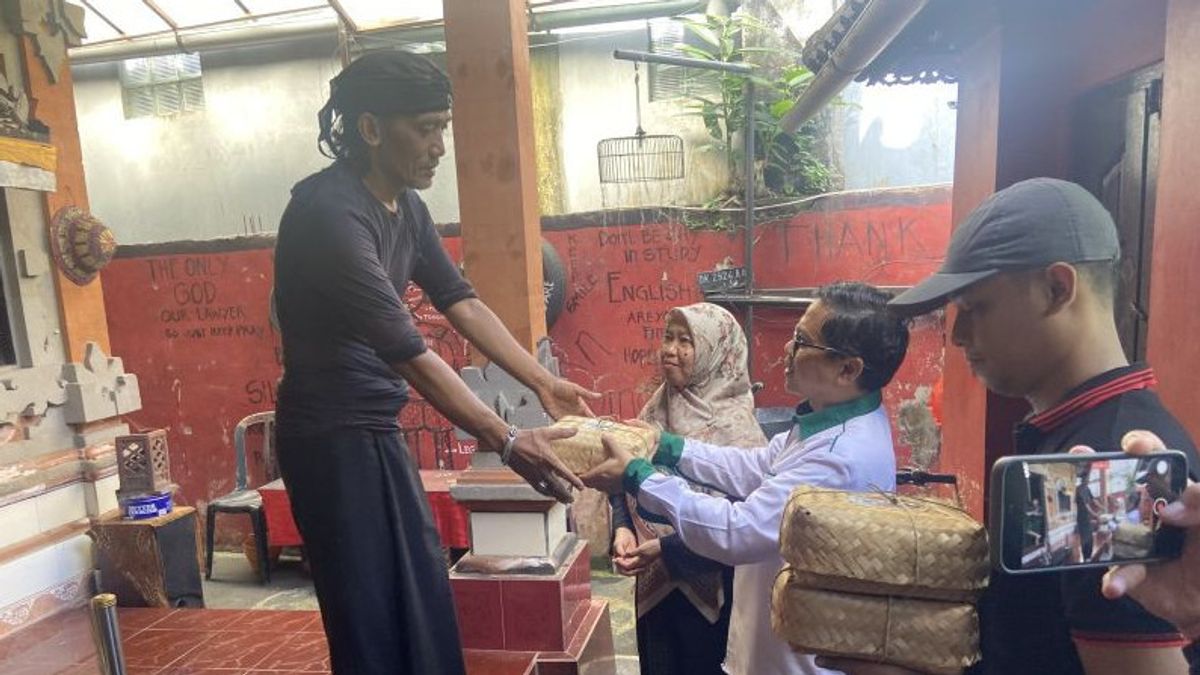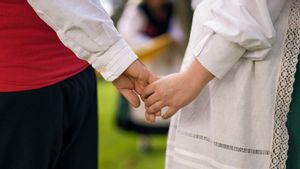DENPASAR - Muslims in Bali who are members of the Indonesian Islamic Da'wah Institute (LDII) are again undergoing the Ngejot tradition or distributing something, in this case, sacrificial meat to other religious communities.
"Later, after the package of sacrificial meat began to be given to the left right neighbor, coincidentally in Bali, the Ngejot tradition was running, giving and being given to make our ties very good, so we know our closest relatives, namely neighbors," said Deputy Chairperson of LDII Bali Haji Hardilan as reported by ANTARA, Monday, June 17.
He conveyed that the tradition during Eid al-Adha has been running routinely for decades, around the Bali LDII office there are residents from various religions who have been living in harmony because they do not know the difference.
This year they slaughtered 131 cows and 278 goats which are planned to be distributed to 12 thousand people in seven regencies/cities throughout Bali, with the highest number of packages in Denpasar, especially to residents around the office.
"We give it especially at the activity venue, in the neighborhood of LDII, closest neighbors and do not see who or what the main thing is the whole community who asks for or needs to be given," he said.
Furthermore, after distributing sacrificial meat in a collection container around the location of the sacrificial slaughter, LDII Bali picked up the ball to the recipients who had been previously recorded so that there would be no accumulation of people.
The harmony of religious communities in Bali did not only occur after the slaughter of sacrifices, but also previously where the local government and the purit or royal family also contributed to routine sacrificial animals.
SEE ALSO:
Like this year, said Hardilan, the Mayors of Denpasar and Puri Grenceng participated by participating in the sacrifice of cows and goats.
The number of 131 cows and 278 goats also increased. Last year they slaughtered 115 cows and 244 goats with 10 thousand recipients.
One of the Hindus who received the package of sacrificial meat, Turah Gede, said he was happy because this tradition continued in the environment.
According to him, togetherness in the environment is indeed well established, often even young Muslims there play to their homes.
"I personally have relatives here, living for decades and there must be this activity, I am very happy because the point is that togetherness is beautiful regardless of our beliefs and religions, we are the Unitary State of the Republic of Indonesia," said Turah Gede.
The English, Chinese, Japanese, Arabic, and French versions are automatically generated by the AI. So there may still be inaccuracies in translating, please always see Indonesian as our main language. (system supported by DigitalSiber.id)


















